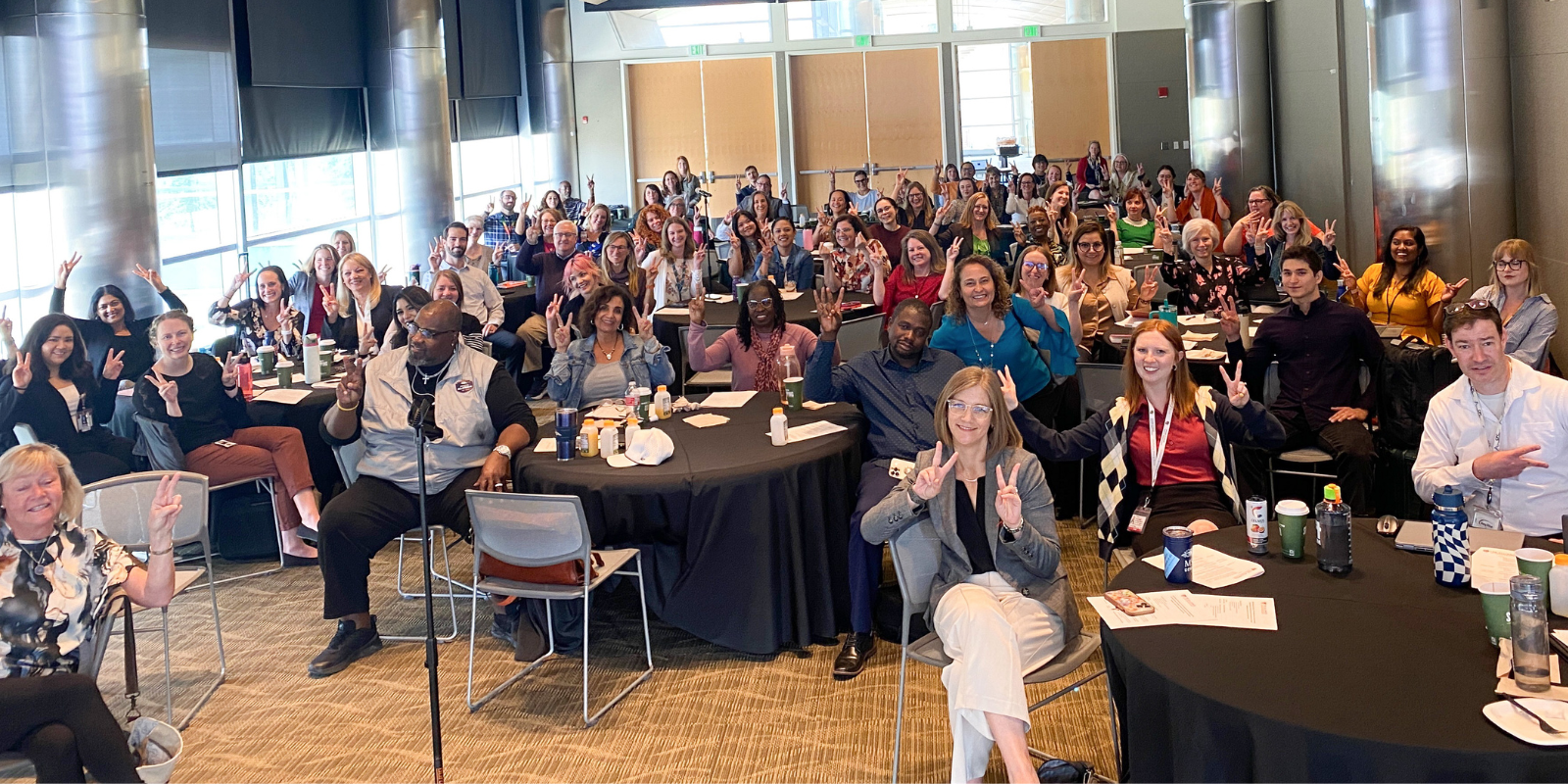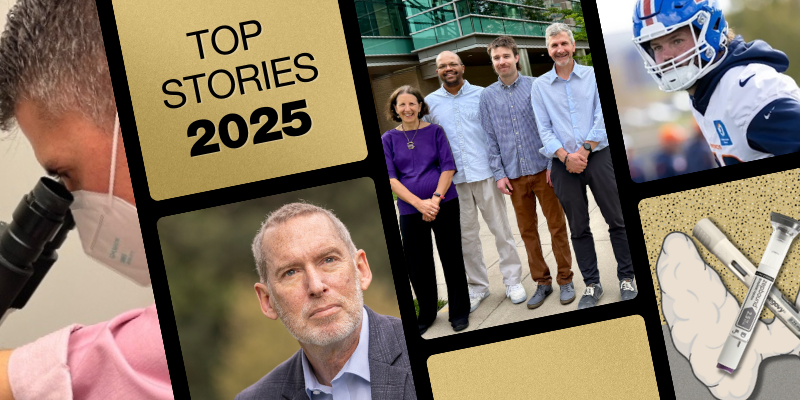The University of Colorado Cancer Center has been working for years to enroll more patients from the far-flung reaches of the state it serves in its many clinical trials that seek to develop new cancer treatments and cures. It’s been grappling with the fact that most cancer patients don’t participate in clinical trials for various reasons. In fact, a 2020 national survey found that 41% of Americans don’t know what a clinical trial is.
Now, a project backed by a two-year, $300,000 American Cancer Society (ACS) grant has expanded patient education about clinical trials across a 200-mile-long swath of Colorado’s Front Range, nearly tripling the number of patients educated about trials by patient navigators participating in the project.
The initiative was led by CU Cancer Center member Andrea (Andi) Dwyer, BS, program director of the Colorado Cancer Screening Program and chair of the ACS’ National Navigation Roundtable, which advocates for patient navigators – the trained non-licensed professionals, nurses, social workers, and other providers who guide patients through the health care system. Stacy Fisher, MD, co-leader of the CU Cancer Center’s Cancer Prevention & Control Program, was also a leader on the grant.
“The navigator can be a good conduit between the patient population and those who can actively refer and enroll patients to trials,” Dwyer says. “So we wanted to ensure that navigators have the appropriate resources to educate patients about the importance of trials and how to take the next step.”
→ Helping Patient Navigation Programs Become Sustainable
Establishing a stronger connection
In the project, which recently concluded, the CU Cancer Center and its clinical partners at UCHealth worked to strengthen patient navigation and expand clinical trial education across UCHealth hospitals and clinics ranging from Fort Collins in the north to Colorado Springs and Pueblo to the south.
“The CU Cancer Center hosts most of the oncology clinical trials in the state, and we’re interested in establishing a stronger connection to rural communities and underserved communities to engage them in trials,” Dwyer says. “That’s a big aim of the cancer center, and we’ve been thinking about the role of navigation in strengthening education and referrals for clinical trials.”
She said that particularly at smaller, rural sites, doctors and nurses might be so focused on providing acute medical care that a meaningful conversation about clinical trials doesn’t happen, which is where navigators can be invaluable.
In preliminary, unpublished results of the project, Dwyer and her colleagues report that clinical trial education by patient navigators jumped from 342 patients educated in 2023 to 929 the following year.
→ More information about clinical trials at the CU Cancer Center

Photo: UCHealth navigators who participated in the ACS-supported navigation-enhancement project. Photo provided by Andrea Dwyer.
Playing an important role
The project emphasized that “patient navigators should know the important role they play in educating patients about cancer clinical trials,” Dwyer says. “They should know about the trials going on, be targeted in their outreach approaches, and talk to patients about trials, defining what a clinical trial is and how to learn more about them. This should be a big part of the workflow for them, to help patients take the next step.”
Dwyer and her colleagues employed a number of strategies to bolder trial education, including a training video and outreach tools developed under the grant as well as educational materials from the CU Cancer Center’s Office of Community Outreach and Engagement (COE).
They also created an interactive digital dashboard integrated with the Epic patient-records system used at UCHealth sites “to give us real-time information on education, outreach, and then referrals for clinical trials,” she says.
And lots of face time was involved, Dwyer says. “We spent time with each organization and hosted meetings at least every other week, and then subgroups would meet every week. In a given month, there were probably 10 to 15 meetings.”
→ Cancer Clinical Trials Save Lives, and Diversity Matters
A kumbaya moment
Dwyer says the ACS-backed initiative also was an opportunity to improve connections among the scattered UCHealth patient navigation programs, sharing best practices and standardizing work and data processes.
“It was like a big kumbaya moment,” Dwyer says. “We were able to get hospitals and all their ancillary clinics throughout the state, with their different cultures, to sit down and have conversations about shared goals as it relates to increasing education on clinical trials.”
Dwyer and her colleagues believe what they learned from the project can be used in other parts of the country to spur clinical-trials education in regional health care systems, and they are sharing information about the work through the ACS and the Academy of Oncology Nurse and Patient Navigators (AONN+), of which Dwyer is a board member.
Dwyer is hoping for additional grant money to sustain and expand on the two-year project. She hopes to find more ways to expand navigator capacity to educate patients about clinical trials, especially in rural areas.
“Even without funding right now, this network will stay engaged with each other to share best practices and learning opportunities,” she says. “If we don’t continue these education efforts, it ultimately will impact the number of patients who really get into trials or even know anything about them.”
→ Jennifer Diamond, MD, Named Medical Director of Cancer Clinical Trials Office
A champion for navigators
Dwyer has long been a champion for patient navigators, seeing them as playing a vital role in the success of cancer patients and in helping to lower barriers to care access, particularly in underserves communities. Navigators are an important component of the Colorado Cancer Screening Program’s efforts.
On April 24-25, she led a statewide conference on the CU Anschutz Medical Campus to talk about challenges facing patient navigation and community health work, including Medicare and Medicaid reimbursement for their services. About 125 attended the larger April 24 session in person and another 100 were online.
“We’re sharing ideas on how we sustain the role and function of these navigators over time and support each other,” she says. “We are building opportunities for people to stay engaged, because right now, if we isolate and don’t continue to learn from each other, keep momentum and enthusiasm going, and celebrate our great work, we’ll fall flat.”
Photo at top: Attendees at a statewide conference on sustainability and reimbursement mechanisms for patient navigation and community health work, held April 24, 2025, at the CU Anschutz Medical Campus. Photo provided by Andrea Dwyer.




